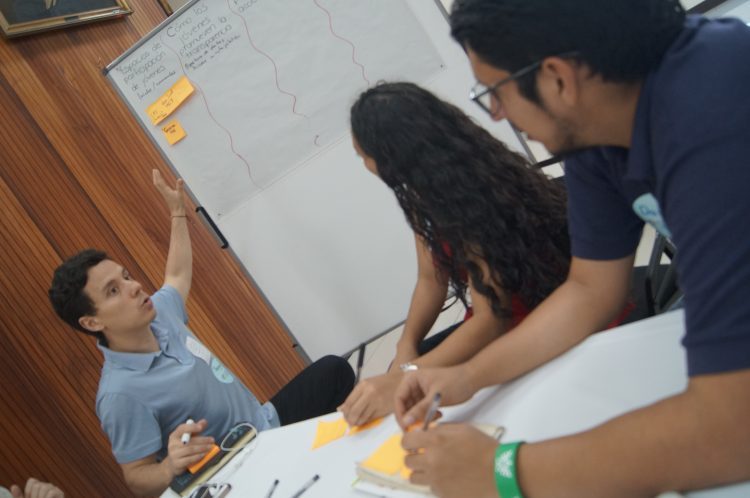Costa Rica's legislative, executive and judicial powers, civil society, the private sector and academia and the European Union EUROsociAL+ programme are building the path towards the design and implementation of a Comprehensive Open State Policy.

Foto: Laura Cárdenas
María Fernanda Vargas lives in the Pococí canton, in the province of El Limón in Costa Rica. Despite her youth and the economic crisis caused by the pandemic that have coast her her job, she is keenly aware that she still has responsibilities as a citizen, perhaps more now than ever. “In my view, participation entails more than consultation. It means influencing decision-making, which is both a right and an obligation”.
Therefore, as a community leader, she works to empower citizens through the Safe Territories organisation which, with its counterparts in the countries, are members of the Open Justice Roundtable, a public policy cocreation forum sponsored by the National Commission for the Improvement of the Administration of Justice (CONAMAJ). “Our movement acknowledges our constitutional responsibility to influence public policies and build the just Costa Rica that we all need. And young people must take this initiative because we will be the ones to drive our country forward”, says Vargas.
Costa Rica is a pioneering country in America when it comes to institutional initiatives on governance, justice and open parliament. Open Government, which is a more transparent, collaborative, ethical and accountable form of governance, is one of the main initiatives to support the establishment of democracies in the world. Its development has gone beyond its conceptual designs and it has been embedded in effective initiatives in many governments that have recognised its usefulness.
As Ana Paulina Sabbagh, an expert with the EUROsociAL+ programme, explains, great efforts have been made by each of the powers that have been embodied in biannual action plans and policies for each branch. “However, in order to make a substantive leap, the coordination and integration of each of the approaches is needed in a new logic for public governance that manages to consolidate an Open State and actively link civil society. For citizens, the state is a monolith, and the actions must consolidate a shared and transversal vision of development and rights from a Comprehensive Open State Policy that harmonises the principles of Open Government with the actions framed in Open Justice and Open Parliaments”, she emphasises.
According to the European Union Ambassador to Costa Rica, Antonia Calvo Puerta, Open State and Open Justice “is one of the greatest challenges for modern democracies across the world, therefore, guaranteeing human rights and improving quality of life for individuals in our communities is an ongoing challenge that demands specific measures to ensure a free society”. Open State calls us to think from citizens’ perspectives and “Costa Rica is a pioneer in the region by implementing actions and strategies that allow progress in this direction”, says Calvo. As the Ambassador explains “since the signing of the Declaration for the Creation of an Open State in Costa Rica, the different public powers in coordination with civil society have expressed their willingness to work on the matter and, with the support of the EUROsociAL+ programme, they have implemented inspiring initiatives that establish a hopeful vision for the future”. Exchanges between peers, the identification of good international practices and the promotion of multi-stakeholder dialogue, especially with civil society, have been central to this.
Recently, the Costa Rican Minister of Communication, Agustín Castro, described the cooperation between the European Union and Costa Rica through the EUROsociAL+ programme as “an act of generosity that allows learning from the experiences of others” to guide the construction of a Comprehensive Open State Policy.
Although the challenges of creating an Open State policy are considerable, more than 30 co-creation actions have been carried out through the EUROsociAL programme, allowing a further progress to be made to empower Costa Rican citizens. “I am proud to be a part of the change and transformation of my country and to be proactively and purposefully aware of our needs. It means I am building institutional credibility” highlights María Fernanda Vargas.



